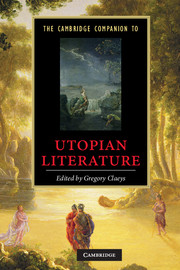11 - Ecology and dystopia
from Part II - Literature
Published online by Cambridge University Press: 28 September 2010
Summary
The terms 'ecology' and 'dystopia' were first improvised from their Greek roots in the mid-nineteenth century. The former was used by Henry David Thoreau in 1858 before being formally defined as a branch of biology seven years later by Ernst Haeckel, while the latter was by employed by John Stuart Mill in 1868. A basic awareness of ecological relationships had been a necessary concomitant of agricultural endeavour since the first crops were sown and the first animals domesticated; farming is, in essence, a matter of creating, sustaining and improving artificial ecosystems. The application of the scientific method to agricultural practice had made considerable impacts long before Haeckel identified a science of ecology, but Thoreau's usage was more closely connected to an increasing sensitivity to the complexity of natural processes, which changed the significance of the word 'nature' in philosophical discourse and popular parlance, where it was often rendered, with a degree of personification impregnated with mystical homage, as 'Nature'. Thoreau was continuing a tradition summarized in Ralph Waldo Emerson's Nature (1836), which owed a good deal to the Romantic movements of Europe; Romantic poets often elaborated their responses to Nature and celebrated supposed communions therewith.
- Type
- Chapter
- Information
- The Cambridge Companion to Utopian Literature , pp. 259 - 281Publisher: Cambridge University PressPrint publication year: 2010
- 14
- Cited by

